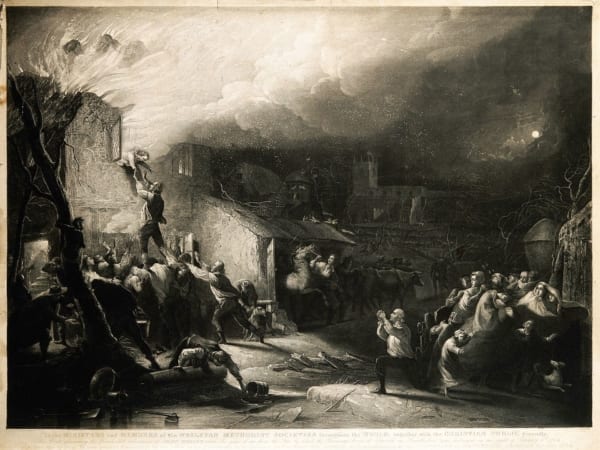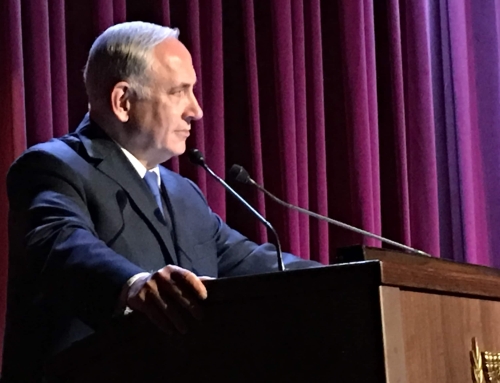By Christine Darg, Jerusalem Channel
In recent decades so much emphasis has been devoted to promoting career women and feminism that the crucial role of motherhood has been sidelined and in many cases, tragically, downplayed.
The power of powerful mothers needs to be recovered.
Susanna Wesley is one of my heroines on the par with many great women of the Bible. She was a biblical woman in the sense that she furthered the kingdom of God by bringing up godly children, two of whom changed the course of world and church history—revivalist and preacher John Wesley and prolific hymn writer Charles Wesley.
In 2002, John Wesley was voted number 50 in the BBC’s poll of the 100 Greatest Britons. He travelled a quarter of a million miles by horseback and preached 40,000 sermons as leader of a revival movement known as Methodism. A key step in the development of Wesley’s ministry was, like his contemporary Evangelist George Whitefield, to travel and preach outdoors.
On UK Mothering Sunday I had the opportunity to visit Epworth, Lincolnshire, in England, the home of the Wesley family. Susanna and her husband, Anglican vicar Samuel Wesley, had 19 children. Nine of their children died as infants including two sets of twin. One of the fascinating facts that I learned — Susanna was number 25 of 25 children!
When we think of how families are so much smaller today, and the number of abortions that take place, who can but wonder what great persons are missing from history?
Today in Epworth, I was reminded of John Wesley being way ahead of his times. He described his ministry in the 1700s as
“the world is my parish.”
Today, thanks to the Providence of God, every believer can rise to this challenge–the world is our parish–due to access to the worldwide web. I can literally share the Gospel 24/7 through www.Jerusalem Channel.tv
Charles Wesley was also a leader in the Methodist movement, most widely known for writing about 6,500 hymns.
Susanna is known as the Mother of Methodism. She was the primary source of her children’s education. Daughters included, they all were tutored in the classical studies that were traditional in England at that time.
Among the hardships Susanna endured was being abandoned by her husband for over a year. She famously wrote to him:
. . . I am also the mistress of a large family. And though the superior charge of the souls contained in it lies upon you, yet in your long absence I cannot but look upon every soul you leave under my charge as a talent committed to me under a trust. . . . I take such a proportion of time as I can spare every night to discourse with each child apart. On Monday I talk with Molly, on Tuesday with Hetty, Wednesday with Nancy, Thursday with Jacky, Friday with Patty, Saturday with Charles. . . .

Christine Darg inside Epworth’s Red Lion Inn where Wesley often lodged. Over the fireplace is copy of the famous painting of 5-year-old John Wesley being rescued from a fire that destroyed the Old Rectory. His mother Susanna instilled in him a sense of destiny.

Image courtesy WikiGallery.org When 5-year-old John Wesley was miraculously rescued from a house fire, his mother declared him a “brand plucked from the burning.” That image would stay with Wesley for the rest of his life.
When her husband was away in London, Susanna assembled her children every Sunday afternoon for family services. The locals began to ask if they could attend. At one point there were over 200 people. Susanna wrote commentaries on theological themes. Her writings are compiled in Charles Wallace’s “Susanna Wesley, The Complete Writings.”
Great mothers instill a sense of destiny into their children. When the Wesley family’s vicarage was burned down, John nearly died but was rescued from a second-storey window. He never lost the sense of destiny that his mother instilled in him as a “brand plucked from the fire.”
The following are a summary of other “Leadership Lessons from the Life of Susanna Wesley,” by Eturuvie Erebor:
http://articles.faithwriters.com/reprint-article-details.php?article=31392
Great mothers are recognised by the achievements of their children. A woman cannot be called a great mother unless she has great children.
Great mothers understand that a great child is not wished for but worked for. Our children will become what we consciously work for them to become.
Great mothers understand that societal change must begin with their children. .. . .The impact of Susanna’s children still speaks.
Great mothers spend quality time with their children. . . . a task that cannot be delegated.
Great mothers do not make others responsible for the spiritual nourishment of their children. . . . God requires that they teach His word to their children according to His commandment in Deuteronomy 6:6-7.
Great mothers can rise up to become great mothers of great children . . .when fathers fail to shoulder their God-given responsibilities.
Furthermore, grandmothers have a great opportunity to impact their grandchildren. In 2 Timothy 1: 5, the Apostle Paul reminded his protege Timothy that he had been instructed by a godly mother, Eunice, and godly grandmother, Lois.









Wonderful article, Christine. My children & grandchildren are all doing well by G-d’s amazing grace. My second book, which I wrote as a legacy to them (but hopefully will be read by many) is due to go to sale on amazon within the next few days. It’s called “Two Books for Daniel.”